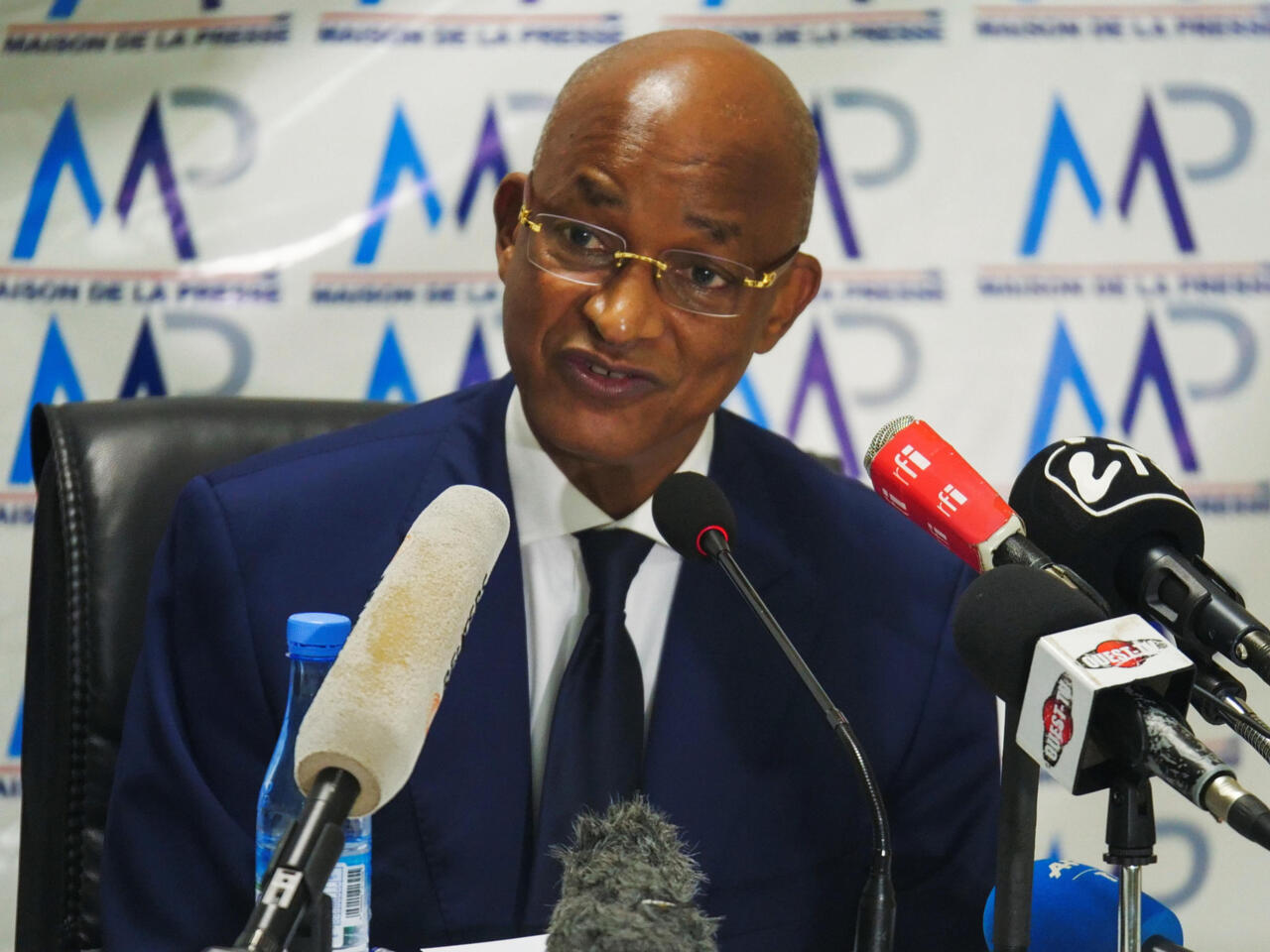
Guinea's main opposition leader Cellou Dalein Diallo, nominated by the UFDG party to challenge President Alpha Conde in the October 18 presidential election, holds a news conference in Dakar, Senegal September 24, 2020. REUTERS/Christophe Van Der Perre
With the presidential election just under three months away, Guinea’s General Directorate of Elections (DGE) has announced the creation of two key commissions to oversee candidate validation and campaign financing, signalling a decisive step in the country’s electoral preparations.
In a statement broadcast across multiple channels, DGE Director General Djenabou Touré Camara confirmed the establishment of a sponsorship reception and validation commission, alongside a financial oversight commission.
These bodies will operate under the legal framework established in the country’s electoral code, particularly articles 249, 250, 275, 276, and 341.
“The sponsorship reception and validation commission is responsible for monitoring the identification of candidates and their sponsorships, under the authority of the election management body and in the presence of representatives,” the DGE explained.
The financial commission will propose the deposit amount required of candidates and set limits on campaign expenditures, ensuring transparency and compliance during the election process.
This announcement follows the decree issued by President Mamadi Doumbouya on September 27, officially scheduling the election for December 28, 2025.
At that time, the President instructed the Ministry of Territorial Administration and Decentralization, via the DGE, “to take all necessary measures to ensure compliance with this timetable.”
The DGE has invited all legally recognised political parties and independent candidates to designate a representative to liaise with the commissions, providing identification and contact details by October 9, 2025. This 48-hour window underscores the urgency and organisational drive behind the preparations.
The upcoming presidential vote forms part of Guinea’s transition back to constitutional order, following a September 21 referendum that approved a new constitution with 89.38% of voters in favour and a turnout of 86.42%.
The new text establishes a seven-year renewable presidential term, creates a Senate, and permits General Doumbouya to run in the forthcoming election. A revised Electoral Code was also promulgated on September 27 by decree.
The DGE concluded by stressing the importance of cooperation from all stakeholders. “We are counting on the effective participation and spirit of collaboration of all concerned for the success of this important phase of the electoral process,” Director General Touré Camara said.



